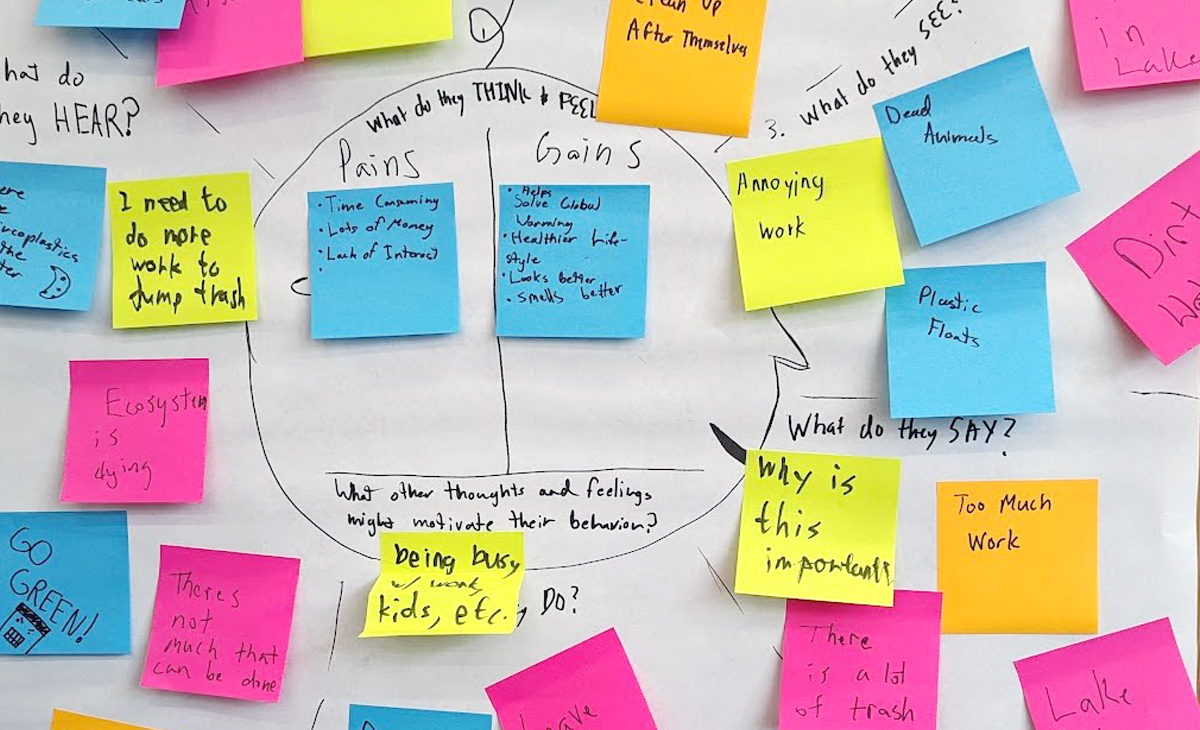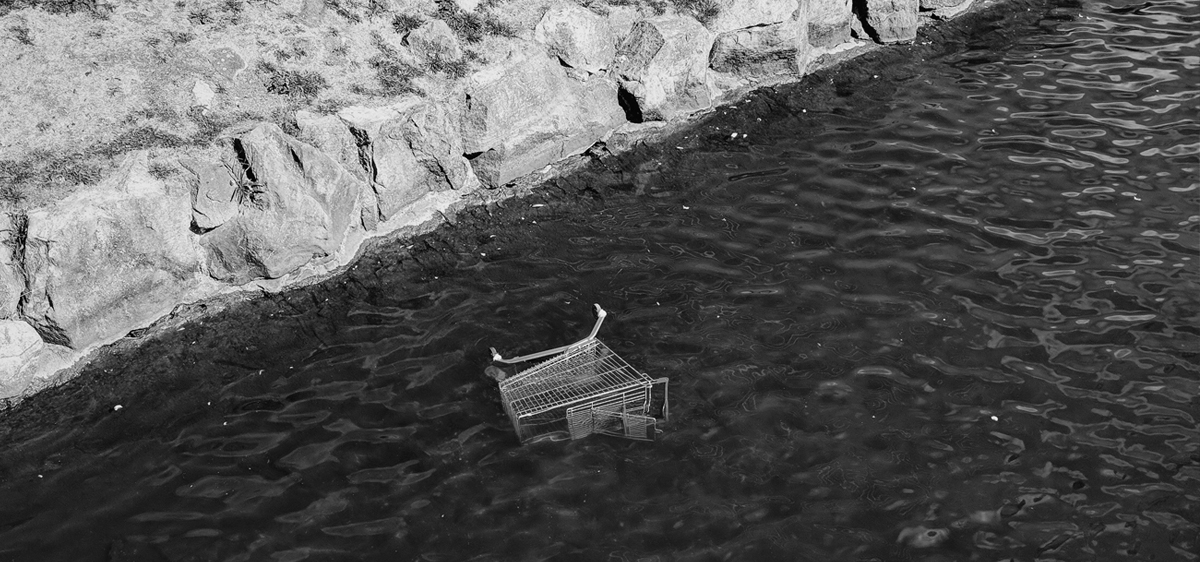
Incentivizing Lake and River Cleanups
Gerald Bowers (Undergraduate - Electrical Engineering), Nikhil Mekkattuparamban (Undergraduate - Data Science), Ang Li ( Undergraduate - Computer Science), Rachel Hayes (Undergraduate - Electrical Engineering), Virrajith Mallavarapu (Undergraduate - Computer Science (Sftwre Engr))
Whats the problem?
In today’s world, lakes and rivers can be polluted with trash, affecting us both recreationally and ecologically. Not only does surface trash in lakes and rivers impact its image, but it also leads to larger problems, such as poisoning the water when it sinks and breaks down into microplastics. This can lead to biomagnification, creating safety hazards for wildlife (and humans), and can create run-off into the ocean, where it is much more difficult to clean.


How did our team get here?
Our team started with a few simple ideas. As we tried to push the limits of our creativity, each of us began going a different direction, leading to the pile of sticky notes we have on our idea map. Unsure of how to sort them all, we first placed them all on our prioritization chart. This allowed us to eliminated ideas that were out of question or were too similar to each other, until at last, we had 5 distinct ideas.
We started with a general audience of all people who enjoy Tempe Town Lake. Our team then branched out to consider all groups would fall under this category, filling out our stakeholder map.
In our empathy map stage, our team sought to understand the spectrum of mindsets people might have regarding the lake, from thoughts of apathy like "Why is this important?" to highly involved environmentalists who may even petition local officials.

Defining the problem
for a better solution
There are many ways to address this issue, and after thorough research, brainstorming, and consideration of our audience and stakeholders, we decided that Trash2Cash would be the most effective solution. In fact, a similar product is already deployed in other countries, positively promoting recycling, and doing so in a cost-effective way. We want to help reduce the amount of trash in lakes and rivers while also incentivizing everyday lake goers to actively participate in the solution. With all these in mind, our team settled on Trash2Cash, a vending machine that everyday lake goers can use to recycle their trash for some cash -- everyone wins.
Storyboard
Our storyboard opens with a dirty lake. A man grabs a can full of trash and excitedly runs it to the nearest “TrashtoCash” vending machine. He then dumps the trash in the machine, which promptly displays the amount of money he received from depositing his trash. He happily walks past the now-clean lake. This storyboard activity gave us some insight into how the solution would work in practice overall.
The prototype
Our prototype is a vending machine-like device that takes in trash, such as plastic bottles, and compensates whoever recycles through their debit card. The green button represents an “in-take” button that allows the bottles to be scanned and weighed, as well as the compensation to be calculated, and the white notch on the bottom represents a slot for someone to insert their debit card.


In today’s world, lakes and rivers can be polluted with trash, affecting us both recreationally and ecologically. Not only does surface trash in lakes and rivers impact its image, but it also leads to larger problems, such as poisoning the water when it sinks and breaks down into microplastics. This can lead to biomagnification, creating safety hazards for wildlife (and humans), and can create run-off into the ocean, where it is much more difficult to clean.